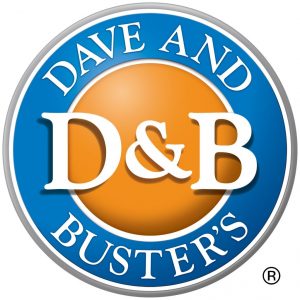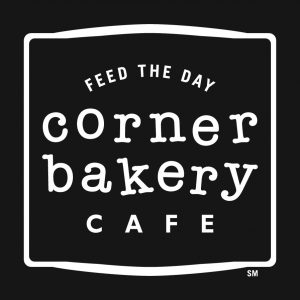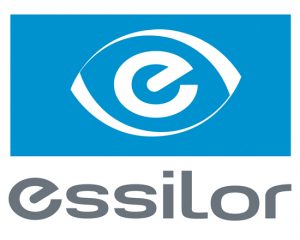 A public entertainment and restaurant business headquartered in Dallas, Texas. Founded in 1982 by James Corley and David Corriveau, the company had a net worth of more than $541.5 million as at 2011, and an active employee count of 8,000. Serving in more than eighty-four locations in areas around Canada and the United States. Every outlet has a full-service restaurant, as well as a video game arena. In 1989, Edison Brothers Stores invested in this business by purchasing a majority ownership to fund further expansions into some other cities.
A public entertainment and restaurant business headquartered in Dallas, Texas. Founded in 1982 by James Corley and David Corriveau, the company had a net worth of more than $541.5 million as at 2011, and an active employee count of 8,000. Serving in more than eighty-four locations in areas around Canada and the United States. Every outlet has a full-service restaurant, as well as a video game arena. In 1989, Edison Brothers Stores invested in this business by purchasing a majority ownership to fund further expansions into some other cities.
Dave & Buster’s left Edison Brothers in 1995 and went public with Andy Newman as the new chairperson. It later acquired nine locations from Jillian, after it filed for bankruptcy. Two of these sites were closed due to the acquisition, and the remaining seven rebranded to Dave & Buster’s. An announcement made in December 2005 revealed that the company was to be acquired by Wellspring Capital Management, a private equity firm. However, this was not made to last long as Dave & Buster’s again filed with SEC to regain its publicly traded company status. The acquisition process was completed in 2010, in partnership with Oak Hill Capital Partners.
Dave & Buster’s offers operations from early lunch and late night services, featuring a wide range of food products. The company’s menu is often updated to depict the guest’s favorite pics as well as current trends in the food industry. The options include burgers, seafood, pasta, chicken and another dessert. Only selected outlets offer Sunday brunch. Additionally, private parties and events can receive various special buffets upon booking.
In the gaming section, Dave & Buster’s offer both custom and contemporary high-tech gaming options. They have power cards that replace traditional tickets and tokens. One needs these cards to activate every midway game, with the possibility of reloading for additional pay. With these power cards, gamers are encouraged to play more, which in turn increases the overall profits for the company. This has helped to eliminate the technical difficulties, as well as maintenance complications associated the widely used coin activated equipment.
The restaurant side of this company experiences various obstacles. Dave & Buster’s, therefore, is well informed of any issues that may be arising. It was thus emphasized that the company needs to focus more on a strategy to lead with entertainment. The management felt that there is need to sell every client the entire experience, including food and beverage. However, nothing was being done that would transfer revenues at the expense of entertainment to food and beverage. Dave & Buster’s records a huge margin between the entertainment sectors in the company, and the restaurants. Fun and games end to be the single operational aspect that generates revenue for the entity in the highly competitive industry.
Even so, the growth prospects of this company are high, operating in more than 90 outlets. The management, therefore, expects to establish eleven extra outlets towards the end of 2016. Additionally, shares trade in a tight range, counting 19% in December.
 Corner Bakery Café is an established American chain of cafes that has its headquarters in Dallas, TX. The café has maintained significant specialty in offering the best breakfast dishes, homemade soups, bread, pastries, gourmet sandwiches, pasta, and salads. The Lettuce Entertain You Enterprise from Chicago initially founded the eatery and ran it for four years before selling it off to Brinker International in September 1995. Upon inception, the Corner Bakery Café offered freshly baked bread, espresso, and coffee. It also continued to provide its services to Lettuce Entertain You Enterprise, which brought about a constant growth in the number of clients and guests. This is when the eatery began serving homemade soups, salads, bread and sandwiches due to greater demands from customers. As the guests continued popping in, the menu expanded further, and there was a need to find an investor that was willing to help grow the business.
Corner Bakery Café is an established American chain of cafes that has its headquarters in Dallas, TX. The café has maintained significant specialty in offering the best breakfast dishes, homemade soups, bread, pastries, gourmet sandwiches, pasta, and salads. The Lettuce Entertain You Enterprise from Chicago initially founded the eatery and ran it for four years before selling it off to Brinker International in September 1995. Upon inception, the Corner Bakery Café offered freshly baked bread, espresso, and coffee. It also continued to provide its services to Lettuce Entertain You Enterprise, which brought about a constant growth in the number of clients and guests. This is when the eatery began serving homemade soups, salads, bread and sandwiches due to greater demands from customers. As the guests continued popping in, the menu expanded further, and there was a need to find an investor that was willing to help grow the business. Founded more than 167 years ago, Essilor offers its exceptional services to clients in the medical industry. Essilor International S.A was founded in 1849, as a small network of eyeglass manufacturing workshop in Paris. The workshop the after developed through the acquisition of some developing factories within its vicinities, equally introducing frame glasses that are used to date. Essilor International S.A came to being because of a grand merger between two ophthalmic firms, Essel ad Silor.
Founded more than 167 years ago, Essilor offers its exceptional services to clients in the medical industry. Essilor International S.A was founded in 1849, as a small network of eyeglass manufacturing workshop in Paris. The workshop the after developed through the acquisition of some developing factories within its vicinities, equally introducing frame glasses that are used to date. Essilor International S.A came to being because of a grand merger between two ophthalmic firms, Essel ad Silor.